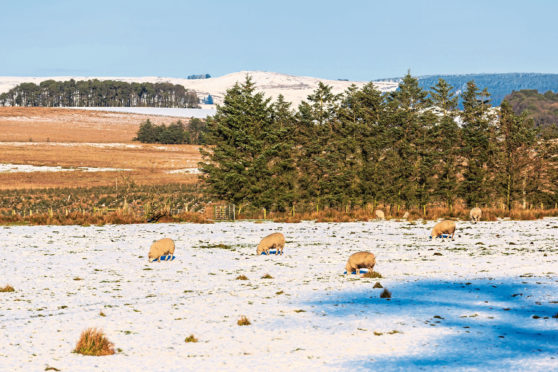The Scottish Government says it intends to persuade farmers, crofters and land managers to change the way they produce food and farm the countryside in order to reduce emissions and tackle climate change.
A broad strategy for the industry, alongside a commitment to fund new approaches to food production, is set out in the government’s update to the Climate Change Plan for 2018-32.
The 250-page plan, which acknowledges the majority of emissions in the agriculture sector come from livestock, recognises it is essential for the industry to continue to receive “income support”.
It states: “We see this as a social contract with our farmers and crofters and through provision of fair and reasonable income levels we will recognise their hard work and effort in food production and environmental stewardship.”
There is a commitment to scale up the Agricultural Transformation Programme, including assessing the effectiveness of the recent pilot Sustainable Agricultural Capital Grant Scheme which enabled producers to buy equipment that will help them reduce emissions.
And while the industry impatiently awaits clarification on the detail of new policy, it is clear the report will form a basis of a new regime. There is a proposal to introduce “environmental conditionality” in the agriculture sector from 2021 via the implementation of the Beef Suckler Climate Report and, from 2022, through the review of the current CAP greening measures, which makes it clear all farmers and crofters will be required to undertake environmental actions
The proposals were broadly welcomed by NFU Scotland (NFUS) president Andrew McCornick, who approved of the inclusion of key messages around the importance of agriculture, food and drink to the Scottish economy.
He added: “NFUS agrees with Scottish Government there is a need to utilise Scotland’s advantages in grassland and cereals and introduce further measures to allow farmers to invest in new technology as well as promoting the uptake of those for increased productivity and reducing emissions.
“We would encourage the expansion of targeted capital spending through the likes of the Sustainable Agriculture Capital Grants Scheme. However, accessibility of the scheme can be improved. We need fresh options that would see greater engagement from all sectors, in particular arable. We also need to support those who have been ‘early adopters’ of green technology to continue on that path and advice should form part of the package to ensure those investing in technology make the most of their investment.”
